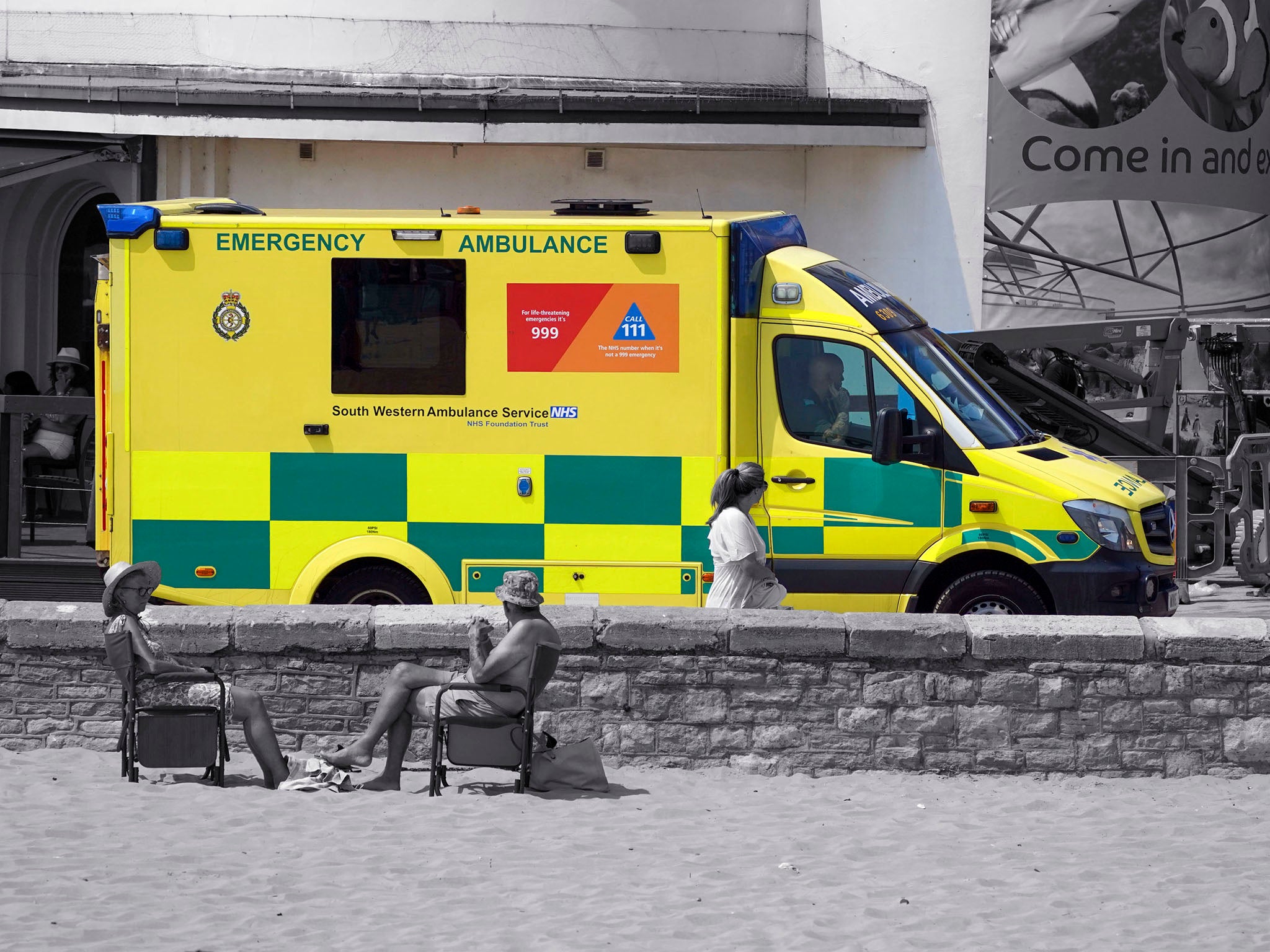How can the NHS weather its summer storm?
Analysis: Staff shortages, a black hole in the social care budget and future Covid waves are among the problems to be overcome. But, writes Rebecca Thomas, the health service must look to how it adapts in the future as well


“At no other time in the past 50 years have so many parts of the NHS been so close to ceasing to function effectively,” the editors of the British Medical Association and Health Service Journal warned this week.
The ambulance service has been the last of the dominoes to fall as the services warned last week that they would not be able to reach patients needing some of the most urgent attention. NHS leaders were forced to effectively tell hospitals to begin providing care in corridors in order to free up space in A&E, allowing ambulances to hand over patients and attend more calls.
It is a grim balance of realities for patients: risky long waits in corridors and fewer staff to help them, or no ambulance when they need it.
For a health service seemingly moving from crisis to crisis with little respite, the challenges ahead need to be taken into consideration as well. On Tuesday, the current Covid wave, which has been stretching the NHS and care services, appeared to have peaked. But scientists are predicting further surges later this year.
Meanwhile workforce shortages and the social care crisis – long the most common problems facing the NHS – continue to ratchet up the pressure.
Now there is a huge backlash within the NHS over the government’s pay offer, which varies from 4.5 per cent for doctors and dentists to just over 5 per cent for newly qualified nurses, and just over 9 per cent for lower-paid staff. In all cases, however, the pay offer is below inflation, meaning a real-terms pay cut for staff.
Unions such as the Royal College of Nursing have said they will now ballot for strike action, while junior doctors who were not included in this pay deal may also strike this year.
Consultants told The Independent they were also angry about the pay offer, while some closer to retirement age have said they are likely to leave the health service. This is partly driven by problems with the costs of pensions which doctors have been warning the government about for a while.
Beyond the immediate risks of unprecedented strike action, if morale is hit so badly that it begins to further impact retention rates the NHS will be in serious trouble.
The government also has not provided the NHS with additional funding to cover pay increases beyond 3 per cent, meaning the cash must come out of existing budgets. Leaders have warned this will mean cuts to diagnostic and technology plans, which as one senior consultant pointed out comes at “the worst possible time”.
Meanwhile, in social care, the annual report of the Association of Directors of Adult Social Services warned the year ahead will be the “most challenging” ever faced. Its annual survey of adult social care identified increased demand, while the industry has to find £1.8bn in savings.
Those running the NHS know too well the direct impact of struggling care services on hospitals and primary care. While Covid has exacerbated the problems crystallising for the NHS right now, they are not borne of the pandemic.
So, with myriad problems facing a health service crippled by Covid-19, and with more on the horizon, how can the NHS move on to a more sustainable future?
The Royal College of Physicians this week set out guidance on how the NHS should seek to recover from the pandemic, and “respond to the challenges of providing non-Covid services while still responding to Covid in the medium to long term”.
It said: “An important part of this period is that it gives us the opportunity to reimagine the NHS, and to strive for a better way of doing things, not simply to return to how we did things before the pandemic.”
One example could be prioritisation focus on reducing inequalities. For example, the issue of health inequalities and gap in life expectancy for those with learning disabilities has long been known. Pulse reported this week that NHS England “will ask GP practices to make ‘reasonable adjustments’ for patients with a learning disability or autism such as giving them priority appointments”.
The NHS is still grappling with challenges, and others – such as flu season – are looming. But perhaps there is also the opportunity for a reset.
Join our commenting forum
Join thought-provoking conversations, follow other Independent readers and see their replies
Comments
Bookmark popover
Removed from bookmarks